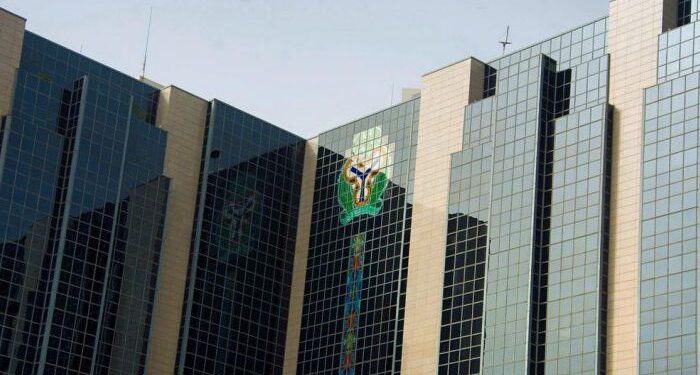Nigeria is witnessing a surge in foreign exchange inflows as renewed investor confidence strengthens the country’s financial markets. The inflows, driven by improved monetary policies, enhanced transparency in the FX market, and stronger engagement with global financial institutions, signal a positive shift in sentiment after months of volatility and uncertainty. According to market analysts, the recent boost is one of the strongest waves of FX liquidity Nigeria has recorded in years, helping to stabilise the naira and energise cross-border investment activity.
The Central Bank of Nigeria (CBN) has played a pivotal role in restoring confidence through a series of policy reforms aimed at boosting liquidity, curbing speculative trading, and increasing transparency in the FX market. Measures such as clearing verified forex backlogs, tightening oversight of Bureau De Change operators, and harmonising exchange rate windows have contributed significantly to the positive momentum. Investors across key sectors, including oil and gas, manufacturing, telecommunications, and finance, are reportedly responding with renewed optimism as the government signals commitment to long-term macroeconomic stability.

Market operators note that Nigeria’s ability to attract higher FX inflows is further supported by improved global sentiment toward emerging markets. With many international investors actively seeking high-yield opportunities, Nigeria’s recent policy consistency and increased engagement with global lenders have enhanced its attractiveness. Analysts explain that the rise in inflows is not only driven by portfolio investors but also by foreign direct investment (FDI), which had dwindled in previous years due to concerns over currency instability, insecurity, and regulatory unpredictability.
The oil and gas sector, historically Nigeria’s primary source of FX earnings, is also benefiting from stronger investor engagement. Reports show that international energy firms are scaling up investment plans ahead of the country’s new licensing rounds, with expectations of improved contract terms and clearer regulatory frameworks. Higher crude production levels and more stable output from major fields have improved FX earnings for the government, contributing to the rising inflow trend.
In addition, diaspora remittances—another major component of Nigeria’s FX inflow profile—continue to rise. Financial institutions report increased transaction volumes following the introduction of incentives, simplified remittance channels, and improved digital banking services. The growing confidence among Nigerians abroad that the domestic forex environment is becoming more stable has played a major role in boosting remittance flows.
The strengthening of the naira in both official and parallel markets is one of the most visible outcomes of the improved FX inflows. Traders note that liquidity has increased substantially in the official market, reducing pressure on the currency and narrowing the gap between market segments. Businesses that rely on imported raw materials have welcomed the development, as improved access to forex reduces costs and strengthens supply chains.
Still, analysts warn that sustaining the momentum will require consistent policy direction, stronger fiscal management, and improved security across key economic corridors. Many investors remain cautious, noting that Nigeria has experienced temporary surges in FX inflows in the past, only for the trend to reverse due to policy reversals or external shocks. They stress that long-term stability will depend on Nigeria’s ability to diversify its FX sources, deepen domestic production, and foster an investment climate anchored on transparency and predictability.
Banking analysts also highlight that recent Eurobond interest and capital market activities point to deeper investor re-engagement. Nigeria’s ability to secure favourable terms in global debt markets has been interpreted as a sign of renewed international confidence in the country’s economic direction. The government’s commitment to fiscal consolidation and debt sustainability has further strengthened investor sentiment, especially among long-term institutional investors.
Meanwhile, local businesses are beginning to feel the ripple effects of improved FX liquidity. Importers who previously struggled to secure dollars for essential inputs now report shorter processing times and more reliable access to foreign currency. Manufacturers also say that the increased inflow is helping to ease production bottlenecks and reduce pricing pressures, potentially contributing to lower inflation in the coming months.
As the FX market stabilises, financial experts believe Nigeria is positioned to attract even more inflows—provided reforms continue uninterrupted. They argue that the combination of clearer exchange rate management, stronger FX reserves, and improved global perception could mark a turning point in Nigeria’s economic recovery efforts.
In conclusion, Nigeria’s strong FX inflows represent a significant boost to the economy and a major indicator that investor confidence is returning. While the gains remain fragile and contingent on sustained reforms, the positive trajectory has created renewed optimism among stakeholders. If the government and the CBN maintain policy consistency and address lingering structural challenges, the current momentum could support broader economic growth, stabilise the currency, and place Nigeria firmly on the path to long-term financial resilience.
Support InfoStride News' Credible Journalism: Only credible journalism can guarantee a fair, accountable and transparent society, including democracy and government. It involves a lot of efforts and money. We need your support. Click here to Donate
